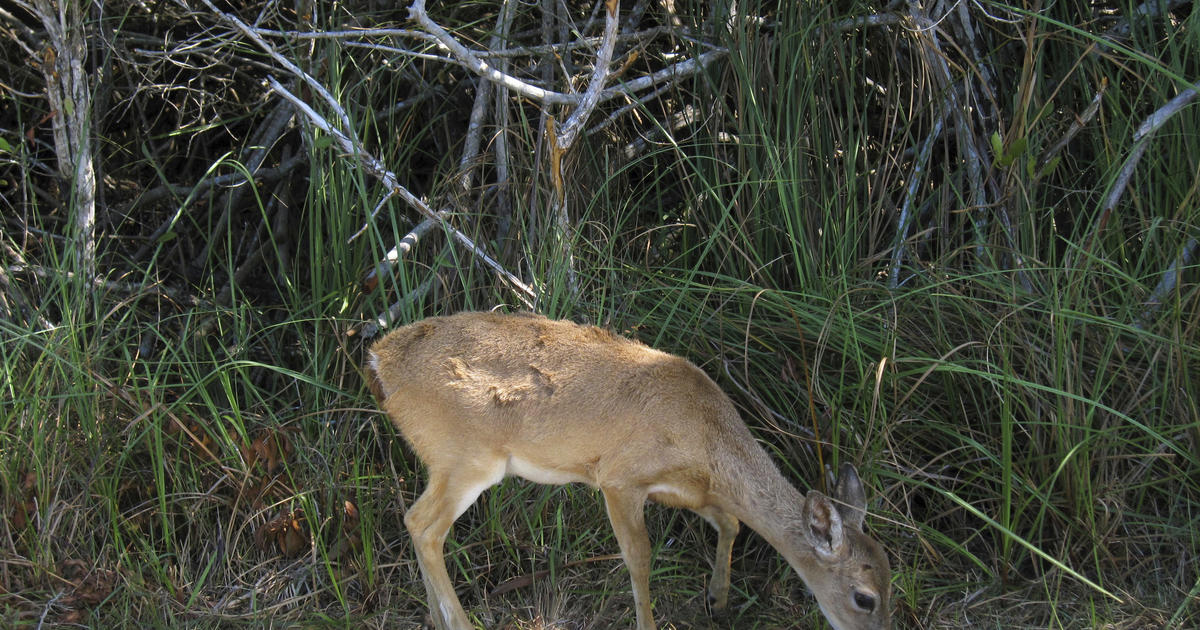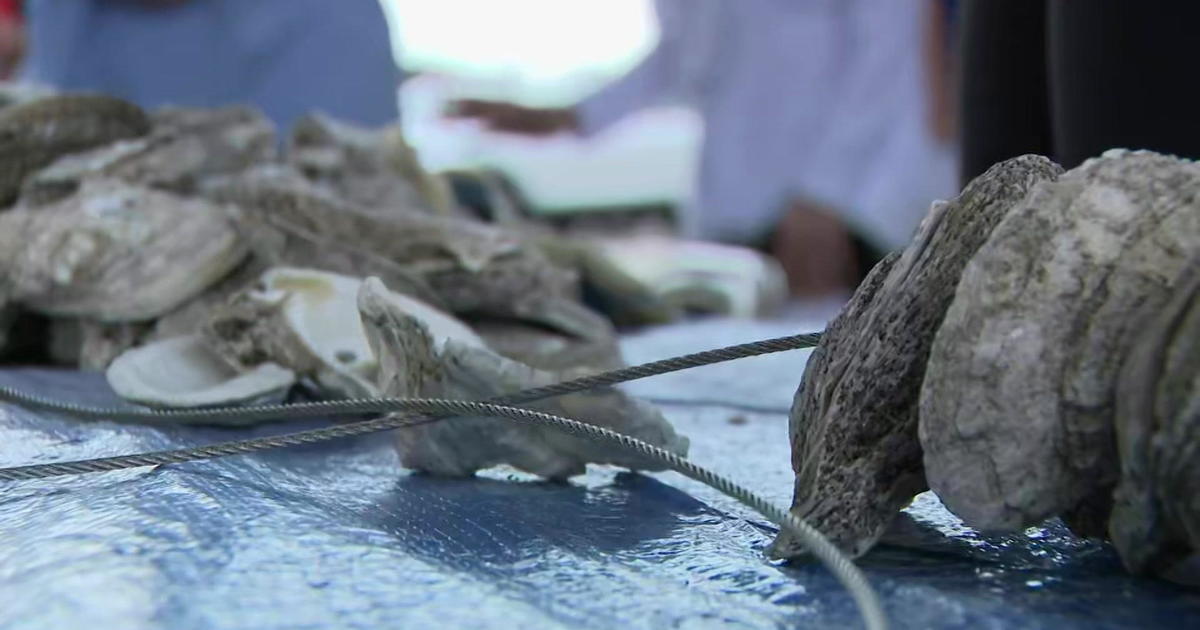Away From Spotlight, Whale Rescue Effort Continues
KEY LARGO (CBSMiami) - The plight of a pod of pilot whales who stranded themselves off Cudjoe Key two weeks ago has moved out of the headlines, but day after day, around the clock, a cadre of volunteers works to save the lives of the 4 surviving whales, standing waist-deep in water for hours as others work to feed them. It may work, or it may not, but nobody is giving up.
"They are living creatures," says Mike Kirkman, an unemployed construction worker. He has been volunteering for three days and says he will stay here as long as they need him. He has established a bond with the four whales. "They have these big eyes and they look at you. You talk to them and they understand you. They are very smart animals," he said.
The four whales, about a thousand pounds each and about 8 feet in length, are the last remaining from a group of more than a dozen who moved into the shallow waters of the Key two weeks ago last Sunday. Rescuers tried to save them, but whale after whale died.
Five were moved last week to the Marine Mammal Conservancy pen in Key Largo. 1 had to be euthanized, and one of the remaining four is clearly ill. The volunteers are working to save it, and to allow it and the others to get strong enough to eventually leave the pen and return to open water.
Robert Lingenfelser, Director for The Marine Mammal conservancy stranding operations said, "it takes team work and a group of volunteers to make sure we get the whales healthy enough to eventually be released."
It is a process experts say could take two months, or more.
Until the whales can be moved from the pen, teams of two volunteers per whale stand in the shallow water, supporting each whale so it can breathe.
At times, they help the mammals travel around the pen. The volunteers from around Florida, sometimes beyond, picking up their own expenses and giving their own time.
Last weekend, there was a line of volunteers. However, during the week it's harder to find enough people to meet the needs, eight or more per shift.
The conservancy continues to need people to donate, their time if possible, or supplies to help the whales and sustain the volunteers.
While experience with marine mammals is helpful, it's not a requirement. Volunteers must be able to stand in water for up to 4 hours, and must be willing to work for the entire shift.
It's suggested prospective volunteers call 305-451-4774 in advance to find the best time to volunteer. If you can't stand in water, there are land-based volunteer tasks as well.
To find out specifics about the shifts, needs for volunteers, and supplies the Conservancy needs, click here.



